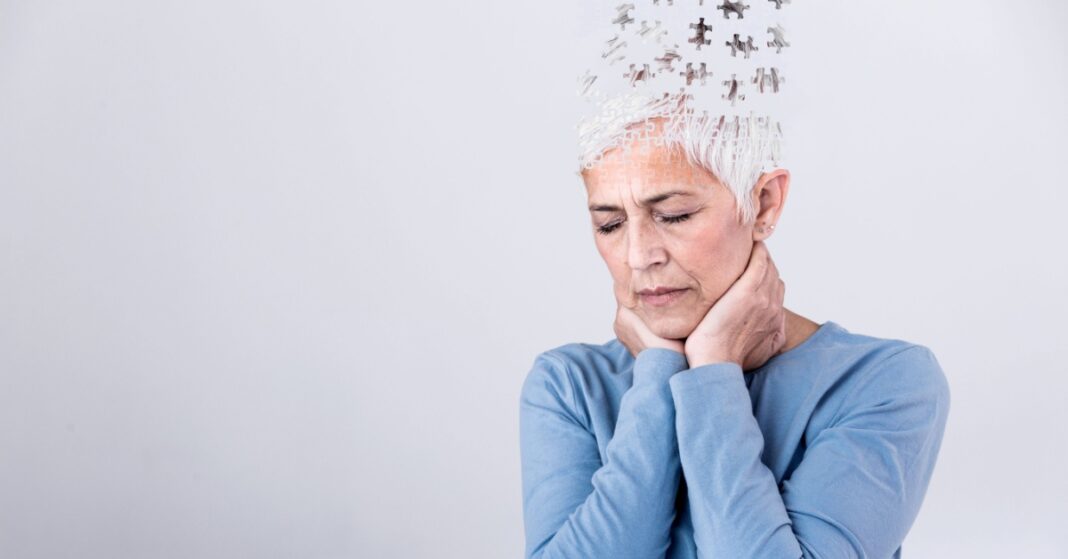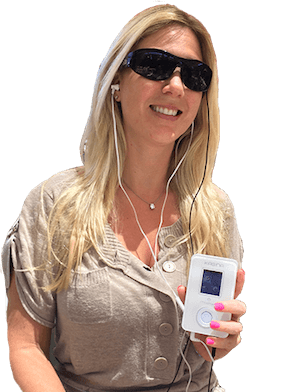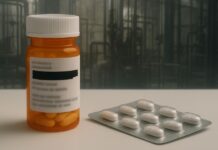OK, let’s dive in again. Before we do, let’s go back to last week’s email headline: “What’s in a word?” Notice we all understand that the word dementia means a medical condition; a disease in effect. But when we say a person is “demented”, that’s a judgmental word, critical and even a little bit rude. Odd that, don’t you think?
So what can we do to hold back the tide of aging and decay? It’s worth doing, because countless individuals have reached extreme old age (100 years and beyond) without any significant loss of cognitive ability. OK, he or she may be a bit slow and careful, but essentially firing on all-four cylinders. (Ha, why not be a six-cylinder super ager?)
Now I expect you’ll be thinking I’m going to start with diet. That’s immeasurably important, of course. But no, one of the most powerful factors in preserving your mental hygiene is… SLEEP!
Poor sleep, as we know, adversely affects mental function. Reduced healthy sleep time can increase proteins linked to the development of Alzheimer’s disease. That’s especially true if you have sleep apnea (more exactly obstructive sleep apnea, or OSA). Sleep apnea means periods of not breathing during sleep. Obviously that impairs oxygen flow to the brain. It can be as frequently as 30 times or more per hour in severe cases.
Patients who regularly experience OSA may be losing significant sleep and under-oxygenation, causing irreparable damage to the brain, worsening dementia symptoms. Consistent patterns of OSA lead to difficulty focusing and making decisions; cognitive impairment (i.e. forgetfulness, lack of concentration, etc.); motor skills become slower. All of these symptoms are part of dementia and so make it worse.
It’s not always simple. Dementia may not only cause poor sleep but may be the direct result of unhealthy sleep behaviors at an earlier age. Early onset dementia can be associated with chronic sleep loss due to insomnia. Sleep loss affects even healthy brains and can begin degrading brain function long before a dementia diagnosis.
As the brain tries to adapt to variable or limited sleep, neurotransmitters are released. These chemicals over time change the brain drastically. Many of the symptoms associated with sleep loss such as poor concentration and memory are the same tell-tale signs that dementia is starting early.
[Osorio RS, Gumb T, Pirraglia E, et al. Neurology. Sleep-disordered breathing advances cognitive decline in the elderly. 2015 May 12]
One study reviewed examined sleep-disordered breathing (SDB) among elderly women and found that 44.8% of study participants with SDB developed cognitive impairment or dementia. Only 31.1% of women without SDB developed dementia.
[Yaffe K, Laffan AM, Harrison SL, et al. Journal of the American Medical Association. Sleep-disordered breathing, hypoxia, and risk of mild cognitive impairment and dementia in older women. Published 2011 Aug 10]
Please be aware of my supplement formula SLEEP DEFENDER.
The Kasina
One way to get more solid sleep and develop better sleep architecture is to use the trick of binaural beats or, better still, the device I recommend called the Kasina device, which adds light, music and voice guidance.
It is a powerful tool for enhancing sleep quality. Utilizing light and sound stimulation, it guides users into a state of deep relaxation, which can significantly improve sleep onset and duration. The device offers various sessions designed to target specific sleep issues, such as insomnia or restless sleep. By promoting a meditative state, the Kasina helps to reduce stress and anxiety, key factors that often disrupt sleep patterns.
Regular use can lead to improved mental clarity and overall well-being, making it a valuable addition to any sleep routine.
There is a lot more to be said about it than I have space for here. If you want to go to my alternative-doctor page on this, it’s here.
The Vielight Neuro
The Vielight Neuro device offers promising benefits for slowing dementia progression through its innovative photobiomodulation therapy. By delivering near-infrared light to the brain, it stimulates cellular function and enhances cerebral blood flow, which can protect neurons and support brain health.
Studies suggest that this therapy may improve cognitive function, memory, and mood in individuals with dementia. Additionally, the non-invasive nature of the device makes it a safe and convenient option for at-home use.
Regular use of the Vielight Neuro device may contribute to slowing the cognitive decline associated with dementia, offering hope for improved quality of life.
I did a pivotal interview with Lew Lim, developer of this device. You can find it here.
Berberine
A growing number of epidemiological studies indicate that metabolic syndrome (MetS) and its associated features play a key role in the development of certain degenerative brain disorders, including Alzheimer’s disease and vascular dementia. Produced by several different medicinal plants, berberine is a bioactive alkaloid with a wide range of pharmacological effects, including antidiabetic effects.
The obvious benefits from Berberine may not be directly neurotropic but via improvements in glucose control and pancreatic function.
A study which concluded “Berberine could impede the development of dementia via multiple mechanisms: preventing brain damages and enhancing cognition directly in the brain, and indirectly through alleviating risk factors such as metabolic dysfunction, and cardiovascular, kidney and liver diseases. This study provided evidence to support the value of berberine in the prevention of dementia associated with MetS.
[J Integr Med. 2020 Mar;18(2):125-151. doi: 10.1016/j.joim.2020.01.004. Epub 2020 Jan 16]
Another study, supported by the National Natural Science Foundation of China, concluded that “…compelling research data demonstrated that berberine may inhibit the pathogenesis of atherosclerosis and have the potential to reduce a host of risk factors for AD, helping people stay healthy as they age.”
[Neuropsychiatr Dis Treat. 2016; 12: 2509–2520. Published online 2016 Oct 3. doi: 10.2147/NDT.S114846]
Of course cheerful and positive reports of this sort always attract derision from the Big Pharma apologists and shills.
You should be taking my Super Berberine which adds Innoslim, Banaba leaf extract, Grains of Paradise and Holy Basil tea (Tulsi) to the basic berberine goodness!
Hericium erinaceus
Mushrooms are great. They contain beta-glucans (better than the yeast beta-glucans that are regularly sold on Amazon etc.), which are effective immune boosters. They also affect cognitive function. The Cordyceps sinensis, grown on caterpillars, for example, is a great energy booster and aids with clarity of thinking.
But the master among brain-health fungi is the Lion’s Mane mushroom, also known as yamabushitake, bearded tooth fungus, bearded hedgehog, or old man’s beard (Hericium erinaceus). There are other names too.
 It’s easy to understand the name “lion’s mane” mushroom!
It’s easy to understand the name “lion’s mane” mushroom!
Lion’s mane mushrooms have a mild, sweet flavor that is said to be similar to lobster or crab meat. You can eat it raw, dried or cooked. It also comes as a supplement in capsule, liquid and powder forms, so you can sprinkle them in your soup or add them to your morning cup of joe or smoothie.
I found a study that looked at two groups of 50- to 80-year-olds with mild cognitive impairment. One group took 250-milligram tablets containing lion’s mane dry powder three times a day for 16 weeks. The other group was given a placebo for the same amount of time. Those taking lion’s mane scored higher on cognitive tests than those who didn’t. After stopping lion’s mane, the first group’s test scores went down.
[Phytother Res. 2009 Mar;23(3):367-72. doi: 10.1002/ptr.2634]
I know from clinical experience of patients who “came back” after using lion’s mane and began speaking normally again. It definitely works—not necessarily universally—for the reversal or slowing of dementia onset.
Methylene Blue
Do you remember, around 20 years ago, there was a lot of buzz around “smart drugs” (nootropics). You popped a pill (such as piracetam) and you got instantly smarter!
The craze seems to have died somewhat. The usual: exaggerated claims by those on the make, plus serious potential side-effects. In truth, good old supplements work the same, or better: such as B vitamins, fish oil and herbal supplements. Gingko biloba is probably the most famous memory enhancer herb but vinpocetine (from the periwinkle plant) is better.
But there is one “smart drug” (that is NOT a drug) that I would stand by and that’s methylene blue. It has been shown to help with cognitive function, reduction in plaques (like amyloid), improvement in memory and it possesses antioxidant properties that can mitigate oxidative stress and inflammation within the brain.
[Cureus. 2023 Oct; 15(10): e46732. Published online 2023 Oct 9. doi: 10.7759/cureus.46732]
You can buy a powder online and mix up your own. A word of caution: there’s real junk out there. Industrial-grade and chemical-grade MB, sold as a dye or stain, can consist of 10% or more of various toxic contaminants and should not be used for humans or animals under any circumstances.
Even pharmaceutical (USP) grade methylene blue may contain some impurities such as arsenic, aluminum, cadmium, mercury, and lead.
The reputable company that I have, for pure methylene blue as an antiviral, is from CZTL (https://cztl.bz), due to their robust testing program. They ship in 1 gram containers of powder with dosage and mixing instructions in each shipment. They also include a Certificate of Analysis (CofA) verifying the purity of the Methylene Blue, with each shipment.
There are other sources but take care. Not all manufacturers and suppliers are ethical and careful.
The only regular side-effect is that it stains your urine and mouth (urine actually goes green: blue plus yellow)!
If you want to read about the powerful anti-viral (and that includes anti-SARS-Cov-2 virus) properties of methylene blue, get my essential VIRUS BLITZING HANDBOOK.
To Your Good Health,
Prof. Keith Scott-Mumby
The Official Alternative Doctor





